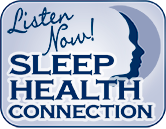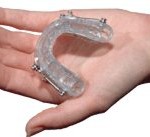Your Best Options for Defeating Your Snoring Problem
If you (and those around you) have long suffered with a snoring, but do not have an apnea problem, you’re probably looking for the best option to get rid of this problem once and for all. Let’s review your options.
- Weight loss
If you are found to have snoring and not have apnea, if you’re overweight, weight loss is a great place to start. Sometimes just 20 pounds difference can make a big difference in the world of snoring and apnea. That’s usually recommended at the beginning.
- Over-the-counter sleep aids
There are a lot of different types of over-the-counter sleep aids available, including breathe strips, back-avoiding devices, and different types of pillows. You might want to try something, especially if you’re not having apnea and you’re just snoring on your back. They train you to keep off your back.
- Retainers and mouth devices
Be very, very careful with devices like PureSleep and SnoreMender. I don’t recommend them at all. There’s lack of follow-up with those devices, and it’s pretty common to see changes in people’s bites, even speech, with using some of these appliances, because there’s really nobody to help guiding you as to the position and what to do to counteract these side effects. I know there are some physicians that are recommending them out there, but only for short periods of time.
Professional oral appliances are highly recommended for snoring, probably the best option. We urge you to seek somebody from the Academy of Dental Sleep Medicine, preferably a Diplomate. Those are dentists that are trained more than just a couple classes. They’ve actually taken tests and have built a relationship with the medical community based on snoring and apnea treatment.
Usually their expertise is far different than the general practitioner or general dentist, just as the sleep physicians and the general practice physicians. Typically the amount taught in dental and medical school is pretty minor compared to people who seek training through these academies. That’s the Academy of Dental Sleep Medicine, and preferably a Diplomate.
These appliances are custom-made, and it’s important to work with an office that can help you prevent some of the side effects that can develop with these jaw retainers.
- Surgery
Surgery is still out there and recommended by some ear/nose/throat physicians, but for just the milder cases the results tend to be pretty short-lived.
- Or you can do nothing. I know that that leaves some relationships strained, misery in some people, so I definitely don’t recommend doing nothing for primary snoring.
Now if you do have apnea with your snoring, your treatment options are different. You really want to consult with a certified snoring specialist to make sure you’re treating the right problem in the right way.
Visit our site at www.TiredOfSnoring.com for additional free resources, or call 1-800-SNORING to either make an appointment at our office or get a referral to a certified specialist in your area.







(630) 369-5508